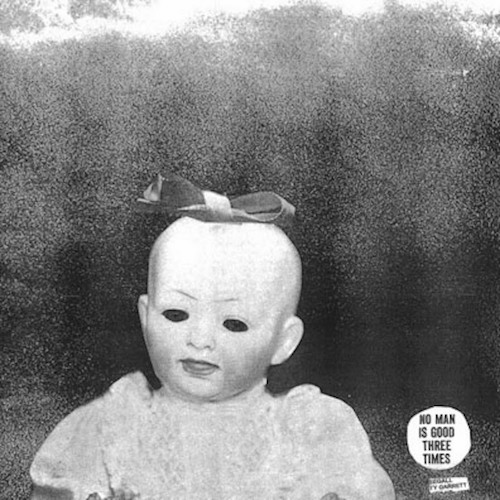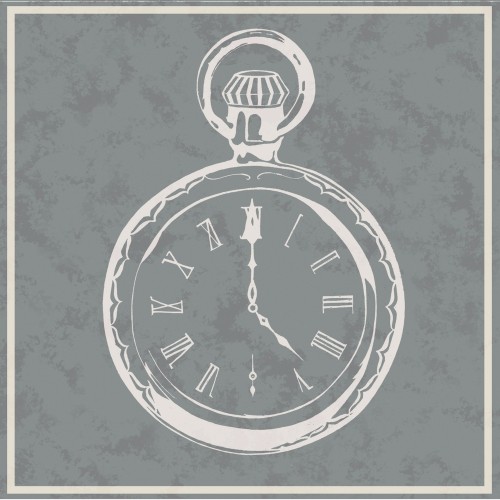 Release Date: February 15, 2011
Release Date: February 15, 2011





Drive-By Truckers are bringing it all back home, sweet home. Channeling its native Muscle Shoals sound, the band paints that swampy Alabaman intersection of Soul and Country music lore. Eddie Hinton, a guitar legend of the local sound who passed away in 1995, serves as a muse to the album. Go-Go Boots features two Hinton covers, the first time Drive-By Truckers has tackled unoriginal material on a studio release.
Go-Go Boots is dirty, brooding and thoughtful Southern rock.
The band has abandoned overproduction in favor of a raw, wholesome and warm vintage sound. The guitars are imbibed with raunchy slides and heart-wrenching fire. The banjoes are plucked in a corner, behind the spoons. Each song on the album has the feeling of a live, one-take performance, the genius of Hinton’s production.
In a nation plagued by lifeless “beers and tears” pop country music (that sounds more like a parody of itself than a subsistent genre) Drive-By Truckers has a refreshingly down home sound. This is honest, for the most part, upbeat honky tonking. One can’t help but do a little ho-down along to the sticks of “Cartoon Gold.”
Drive-By Truckers have garnered the critical title “Alternative Country.” Though it may be cringe-worthy, what else do you call something that isn’t mainstream and yet undeniably country music? This is a band that first garnered renown in 2001 for their work Southern Rock Opera chronicling the rise and fall of Lynyrd Skynyrd. Both bands sweat native pride with an ear for long-form ballads of the common man, but the difference is there’s no sentimentality with the Drive-By Truckers. The truth, no matter how ugly, is the unerring palette of the Truckers.
Lead singer Patterson Hood pours his bleeding heart out in “The Fireplace Poker,” a dynamic performance worthy of note. The lyricism is old-timey and frank. His husky, Southern drawl lends itself to the sweaty feel of Go-Go Boots. The understated harmonica beneath his whine paints a bleak night sky, viewed from a country porch.
This is wide-open music, imbibed with the surreal Alabaman landscape of swamp-moss and cotton plants.
The most stellar moments on the album are in the troubled, dystopian invocations of Southern Gothic. Mike Cooley calls “Used to Be A Cop” a tale “of paranoia and suspense.” It doesn’t pull any punches, “I had a car but the bank came and took it/ Payin’ for a house that that bitch lives in now.” The characters are at times frighteningly real, capable of unspeakable cruelties and somehow never beyond sympathy. We might all know the kid from the titular track that, “Got some girl pregnant when he was sixteen/Workin’ for McDonalds, pumpin gasoline.”
“Everybody Needs Love,” one of the Hinton covers, infers just what it says. It’s a little uninspired, if not altogether tired statement of a song. There’s an invariable backbeat to each track on the album, everything’s got a little ramble-tamble, which is addictive but numbing. Sometimes you just want them to slow down, to dwell on the complex issues they present; murder, gun-ownership, rape and cuckolding to name a handful. On each of the songs, narrative is constructed plainly by the singer with reckless abandon toward exposition. What was the protagonist shooting at in “Ray’s Automatic Weapon” that was “all too real” to the point he can’t go on?
Go-Go Boots ends with the crescendoing, reverend gospel of “Mercy Buckets,” where Hood promises, “I will be your saving grace.” This is unashamed Americana, fearlessly parading our roots. Unfortunately, the antiquated nature of the music has kept it all but nostalgiac in our country and the band is actually more beloved among European audiences. While the album never achieves something magical, suffice to say it is dirty, sexy and everything we like to idyllically envision about the South.
Go-Go Boots Tracklisting
- I Do Believe (3:33)
- Go-Go Boots (5:38)
- Dancin’ Ricky (3:28)
- Cartoon Gold (3:15)
- Ray’s Automatic Weapon (4:27)
- Everybody Needs Love (4:38)
- Assholes (4:41)
- The Weakest Man (3:21)
- Used To Be A Cop (7:05)
- The Fireplace Poker (8:16)
- Where’s Eddie (3:03)
- The Thanksgiving Filter (5:37)
- Pulaski (4:26)
- Mercy Buckets (5:24)


